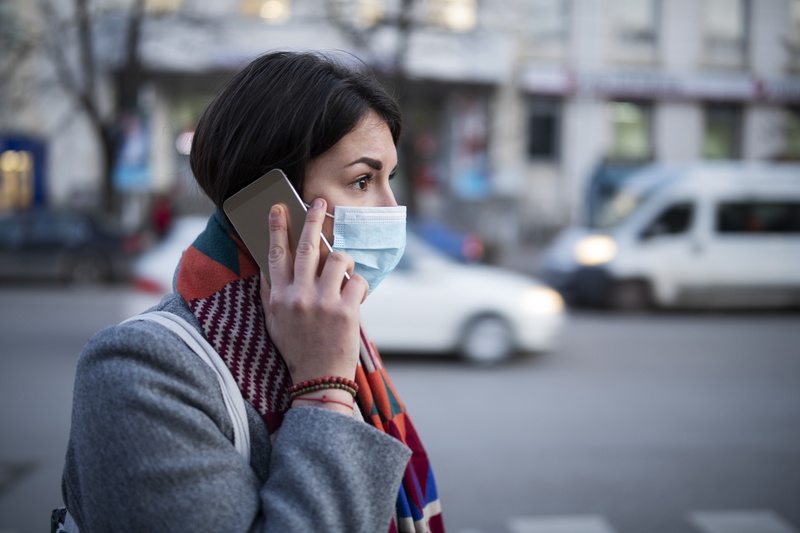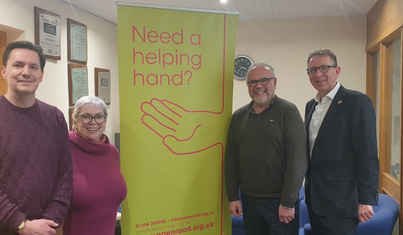Due to the unprecedented changes in society regarding Coronavirus, employers may change working arrangements and allow furloughed employees to undertake volunteer work whilst picking up the tab for their expenses incurred in carrying out these duties.
Employees could be required to lodge in hotels near to their workplace, if they are key workers or could be manufacturing goods to keep the country stocked with essential supplies.
There are a few relaxations to existing measures, but most remained unchanged and a goodwill gesture by an employer may have unintended tax consequences and we have provided a summary of these rules that have been released by HMRC.
The announcements relate to Income Tax only and rules relating to National Insurance may vary depending on the individual benefit or expense.
Living accommodation
If your employee is working at a permanent workplace (more than 24 months)
If you are providing living accommodation for an employee working at a permanent workplace because of coronavirus, the cost will be taxable. This could be where an employee is staying in separate accommodation to isolate from their household to allow them to continue to work.
If an exemption applies for customary roles, for example, if your employee is a warden of a sheltered housing scheme and is living at the premises where they are on call outside normal working hours, there will be no tax charge.
If your employee is working at a temporary workplace (for less than 24 months)
Tax relief is available for your employees who are provided with living accommodation when working at a temporary workplace because of coronavirus. This could be an NHS worker assigned to work at a Nightingale Hospital and is required to stay nearby. The location will (hopefully) be a temporary workplace and there will be no charge to Income Tax.
You should report the cost of providing the accommodation on a P11D as normal, even if the value of the benefit is nil.
Lodging expenses
If your employee cannot return home because of coronavirus you may agree to reimburse their subsistence expenses and lodging expenses, for example if they stay in a hotel room near to their permanent workplace.
These are taxable and can be reported through a PAYE Settlement Agreement where the employer picks up the tax bill for the employee.
Volunteer fuel and mileage costs
To support volunteer work by your employees, you may agree to refund fuel costs or fund the costs of volunteer mileage.
Employees using company cars for volunteer work
You may agree to refund the fuel costs (using the Advisory Fuel Rates) of your employees carrying out volunteer work related to coronavirus, for example, delivering medical supplies including PPE.
These refunds are a benefit and you may settle any tax and National Insurance contributions on your employee’s behalf by reporting through a PAYE Settlement Agreement.
You may also agree to fund the cost of fuel for volunteer mileage related to coronavirus. Volunteer mileage should not be taken into account for the purposes of the car fuel benefit charge for company cars.
Any tax and National Insurance contributions due should be reported through a PAYE Settlement Agreement as a coronavirus related benefit based on the appropriate advisory fuel rate for the volunteer mileage.
Employees using private cars for volunteer work
If your employee uses their own car to volunteer you can refund them up to the level of the approved mileage allowance rate. This is taxable and should be reported through a PAYE Settlement Agreement as a coronavirus related benefit.
If you pay your employee less than the approved mileage allowance rate, they cannot claim mileage allowance relief.
Paying or refunding transport costs
If you pay or refund your employee the cost of transport from work to home, this is considered to be a benefit. This is because journeys between an employee’s workplace and home are private journeys.
In some circumstances there is an exemption from paying tax on this benefit. For this to happen, all of the following four conditions must be met:
- the employee has to work later than usual, and until at least 9pm
- this happens irregularly
- by the time the employee finishes work, either; public transport has stopped or it would not be reasonable to expect them to use public transport
- the transport is by taxi or similar road transport
Your employees may regularly travel to work in a car with one or more other employees using a car-sharing arrangement. If this arrangement stops because of unforeseen and exceptional circumstances, which are coronavirus related, and you provide transport or reimbursement of the expense of transport from your employee’s home to workplace, this may also be exempt.
The total number of exempt journeys cannot exceed 60 journeys in a tax year. This is a single limit that applies to the late-night journeys and the failure of any car-sharing arrangement, together.
If these requirements are not met, free or subsidised transport is taxable and should be reported through a PAYE Settlement Agreement as a coronavirus related benefit.
Free or subsidised meals
You do not have to report anything to HMRC or pay tax and National Insurance if you offer all your employees:
- free or subsidised meals of a reasonable value at a workplace canteen
- vouchers that cover the cost of buying these meals
Free or subsidised meals that are not exempt
This includes meals that are:
- not on a reasonable scale, for example elaborate meals with fine wines
- provided off-site but not at a canteen, for example at a restaurant
- not available to all staff, for example meals for directors only
- provided under salary sacrifice or flexible remuneration arrangements (also known as ‘flexible benefit plans’)
If you provide other vouchers, cash allowances or employee accounts, this counts as earnings, for example:
- vouchers that can be exchanged for either food or cash
- cash allowances for meals
- top-up payments to an employee’s account for workplace food and drink using a card or PIN system
For these costs, you must:
- add the amount to your employee’s other earnings
- deduct and pay PAYE tax and Class 1 National Insurance through payroll
If the meals or vouchers you provide are not exempt, you need to report them to HMRC and deduct and pay tax and National Insurance on the costs.
Company car ‘availability’
Your employee may have been furloughed or is working from home, because of coronavirus, and provided with a company car which they still have. You should treat the car as being made ‘available for private use’ during this period even if your employee is:
- instructed to not use the car
- asked to take and keep a photographic image of the mileage both before and after a period of furlough
- unable to physically return the car or the car cannot be collected from the employee
Where restrictions on movement applies because of coronavirus and prevents the car from being handed back or collected, HMRC will accept that a company car is unavailable in the following circumstances:
- where the contract has terminated - from the date that the car keys (including tabs or fobs) are returned to the employer or to a third party as instructed by the employer
- where the contract has not been terminated – after 30 consecutive days from the date that the car keys (including tabs or fobs) are returned to the employer or to a third party as instructed by the employer
The return of keys means that a car cannot be driven in any circumstances even if it is still in the possession of your employee.
HMRC also recognise that following relaxation of coronavirus restrictions, it may take some time to collect cars where contracts have been terminated. As long as your employee continues to have no access to the keys until the car is collected from them, HMRC will still regard the car as being unavailable.
Salary sacrifice
Changes in circumstances because of coronavirus are accepted as a lifestyle change which allows salary sacrifice arrangements to be reviewed. If your employee chooses to amend a salary sacrifice arrangement because of coronavirus, you must make sure the change is reflected in the terms and conditions of their employment.
The rules on salary sacrifice changed in April 2017 and for most arrangements entered into before 6 April 2017, these new benefit valuation rules now apply.
The transitional rules apply for a longer period where the benefit is:
- the provision of a car with emissions of more than 75g CO2/km
- provided living accommodation
- the payment of school fees
The new rules will not apply to these types of benefits until 6 April 2021, unless employees vary or renew their arrangements.
An arrangement is not regarded as being varied if the variation of the arrangement is only directly in connection with coronavirus.
Employer-provided loans
A salary advance or loan to help your employee at a time of hardship counts as an employment-related loan. Loans provided with a value less than £10,000 in a tax year are non-taxable and can be provided interest-free.
How to report to HMRC
Any expenses or benefits which are related to coronavirus can be reported on your PAYE Settlement Agreement. Please speak to a member of the Streets team about how PAYE Settlement agreements work.
If you are currently payrolling benefits in kind, you may continue to report expenses and benefits through your payroll as long as you’ve registered with HMRC before the start of the tax year (6 April). You may also continue to report expenses and benefits through P11D returns.
HMRC expects all P11D and P11D(b) returns to be completed online by 6 July 2020 and have yet to announce any extensions to this for the tax year 2019-20.



